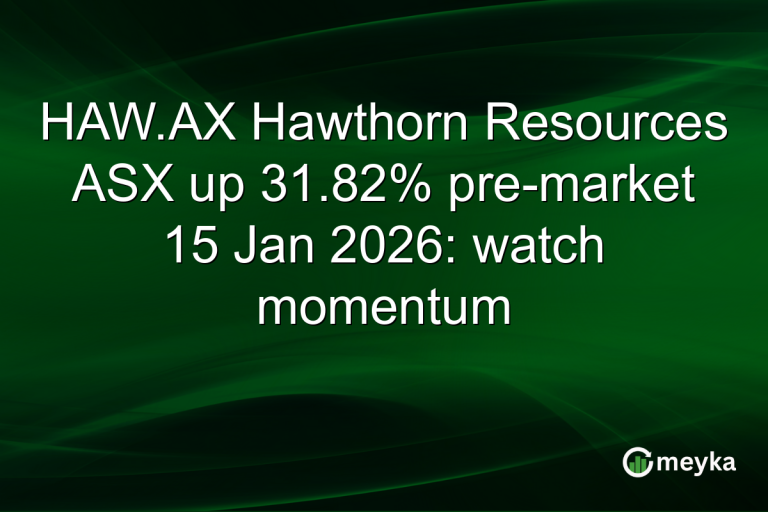Walmart’s Q2 Earnings Miss Expectations: Stock Declines
Walmart’s second-quarter earnings report has disappointed investors, resulting in a significant stock decline. While Walmart raised its annual sales and profit projections, its Q2 earnings missed analyst expectations, leading to concerns over rising tariff costs. This combination of factors caused the Walmart stock (WMT) to drop sharply, reflecting market apprehensions about the company’s future profitability.
Walmart’s Q2 Earnings Shortfall
Walmart’s Q2 earnings came in below analyst predictions, which sparked concerns among investors. Specifically, the company’s earnings per share were lower than expected, despite a reported net income per share of $2.35. The shortfall can be attributed to rising operational costs, including tariffs that have impacted profit margins. This has led to increased scrutiny from analysts who anticipated stronger performance in the retail giant’s financial results.
Impact on Walmart Stock Price
Following the earnings announcement, Walmart’s stock experienced a notable decline. The stock price fell by 4.5%, closing at $97.96. This marks a dip from the previous close of $102.57. Despite reaching a day high of $99.45, the stock could not maintain upward momentum. The company’s market cap now stands at approximately $781.72 billion, reflecting a cautious market response.
Analyst Ratings and Future Projections
Analysts have offered a mixed outlook for Walmart. The consensus rating remains at ‘Hold,’ with a strong lean towards ‘Buy,’ as indicated by 30 analysts. However, it’s important to note that no strong buy ratings have been issued. The median target price is $95.50 with a consensus target of $98.50, highlighting conservative expectations. The company’s B- rating and strategic focus on cost reduction may play a pivotal role in recovery.
Broader Market Implications
Walmart’s situation sheds light on broader market concerns. While retail giants like Walmart navigate global economic pressures, investor sentiment remains cautious. The stock’s price-to-earnings ratio is currently at 41.86, above the industry average, which raises questions about valuation amid future earnings growth. Despite a solid operating cash flow per share of $4.69, analysts worry about profit sustainability in a challenging economic environment.
Final Thoughts
Walmart’s Q2 earnings miss and subsequent stock decline reflect broader market fears regarding profitability under economic pressures. While the retailer has adjusted its annual forecasts, headwinds such as tariffs and rising costs cannot be ignored. Investors and analysts are cautious, looking for strategic moves to boost performance and regain confidence. For data-driven insights into Walmart’s ongoing market journey, tools like Meyka provide real-time analysis and forecasting, aiding in informed decision-making for investors.
FAQs
Walmart’s stock declined due to earnings failing to meet analyst expectations, compounded by rising operational costs from tariffs, affecting profitability.
Key metrics included a net income per share of $2.35 and a market cap of approximately $781.72 billion. The stock saw a 4.5% decline, closing at $97.96.
The consensus rating is ‘Hold,’ with a median price target of $95.50. Analysts are cautious, citing valuation concerns and economic pressures impacting earnings.
Disclaimer:
This is for information only, not financial advice. Always do your research.






